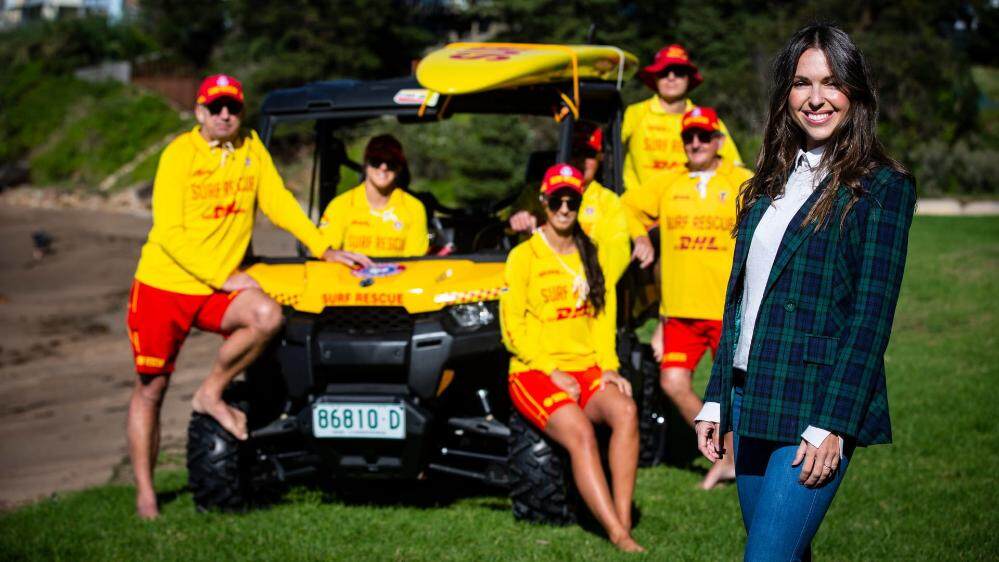Partnership with Surf Life Saving NSW focuses on leadership, creating a positive environment for vital volunteers


Australia relies on almost six million volunteers, who are the backbone of our society. Sports, education, humanitarian and notably the nation’s vital emergency and rescue services all depend on ordinary citizens making an important contribution.
But, volunteering is in decline in Australia and the issue has been exacerbated by the COVID-19 pandemic. As a result, organisations are racing to retain the volunteers Australians depend on to help protect our community and save lives.
This National Volunteer Week (Monday 17 May to Friday 23 May), Dr Vivien Forner is drawing attention to Australia’s declining volunteer problem and partnering with industry to solve it.
Dr Forner’s research, which focuses on the psychology of leadership and motivation, has been helping organisations improve the quality of the volunteering experience and retain their volunteers. She said the lessons learned from her research can be applied to all organisations that rely on the work and support of volunteers.
Volunteering is worth approximately $43 billion to the Australian economy, according to data from the Australian Bureau of Statistics.
While the effects of COVID-19 on Australia’s volunteers were stark, Dr Forner said it had simply accelerated a downward trend in volunteering that had been occurring for a number of years.
“Australia has one of the highest rates of volunteer participation in the world, but in the last 10 years, the number of volunteers lending their time to organisations has been in decline,” said Dr Forner, who is based in the University of Wollongong’s (UOW) Faculty of Business and Law.
“Now, organisations and non-profits are competing for scarce volunteer resources. We are seeing a trend towards more episodic, one-off volunteering experiences, rather than people deciding to make a long-term, ongoing commitment to a cause or group they are passionate about.”
To solve this problem, Dr Forner’s research highlights the importance of effective volunteer leadership and a climate that sustains volunteers’ motivation.
“The interpersonal style of leaders at the organisation is one of the most critical factors in volunteers’ decision to continue or quit volunteering. Volunteers are especially sensitive to poor leadership,” Dr Forner said. “The research has shown that authoritative, command-and-control style leadership drives volunteers away.”
At the same time leaders who have strong interpersonal skills – good communication, the ability to listen and empathise and are supportive– have the most success in retaining volunteers.
Dr Forner said volunteer are more motivated and compelled to stay when they are given autonomy, feel like they belonged, and felt competent or effective in their volunteer roles.
“These are the ingredients of a motivating and supportive volunteer experience. She explained. “They provide a simple evidence-based framework that can guide volunteer organisations on where to focus their efforts.”
Dr Forner has been working with several emergency service and non-profit organisations, including Surf Life Saving NSW (SLSNSW), to implement and evaluate interventions that are helping improve leadership to retain volunteers.
With approximately 75,000 members, SLSNSW is the largest volunteer organisation in Australia, but has also been impacted by declining volunteers.
SLSNSW have partnered with Dr Forner on a three-year strategy to help create a positive impact on the leadership culture of the organisation, resulting in an improved retention rate and improved volunteer satisfaction.
George Shales OAM, President of Surf Life Saving NSW, said the work with UOW had been instrumental to help the organisation create a positive environment for volunteers.
As first responders and lifesavers, the work that our volunteers carry out on behalf of Surf Life Saving NSW is critical to both their community, our organisation, and the hundreds of thousands of visitors that recreate on our beaches annually,” said Mr Shales.
“Without this volunteer commitment, which equates to over 650,000 hours per year, the fabric of community cohesion, confidence and resilience would be greatly diminished. In fact SLSNSW, would not retain the iconic and trusted status that it has enjoyed for many years. When you then contemplate the human impact of not having our volunteers protecting visitors to our coastline, both within and outside the red and yellow flags, the result would undoubtedly be that of a catastrophic nature with multiple devastating drownings and injuries.
“The pressure placed on our volunteers as first responders and leaders within their communities and respective surf lifesaving clubs can on occasions be significant and sometimes overwhelming, particularly if they are not appropriately equipped with the leadership training and tools to deal with these circumstances.
“The work that has been undertaken by UOW in partnership with SLSNSW plays an important role in ensuring our volunteers are prepared and equipped with the leadership tools and knowhow to effectively navigate and lead within an ever-changing operating landscape.”
Dr Forner said National Volunteer Week was a chance to celebrate the incredible role that volunteers play in our community and reinvigorate volunteering in Australia.
“Volunteering is good for you. It has so many benefits and is proven to improve health and wellbeing.
“If you have ever thought of volunteering, or have volunteered in the past, now is the time to come and join an organisation. We want to reverse this downward trend and encourage more people to look at how they can get involved in their community.”
Main photo caption: Dr Vivien Forner with leaders from Surf Life Saving NSW clubs throughout the Illawarra, pictured at Coalcliff Beach. All pictured took part in the Inspire Retain Engage Leadership Development Program. Photo: Paul Jones



































